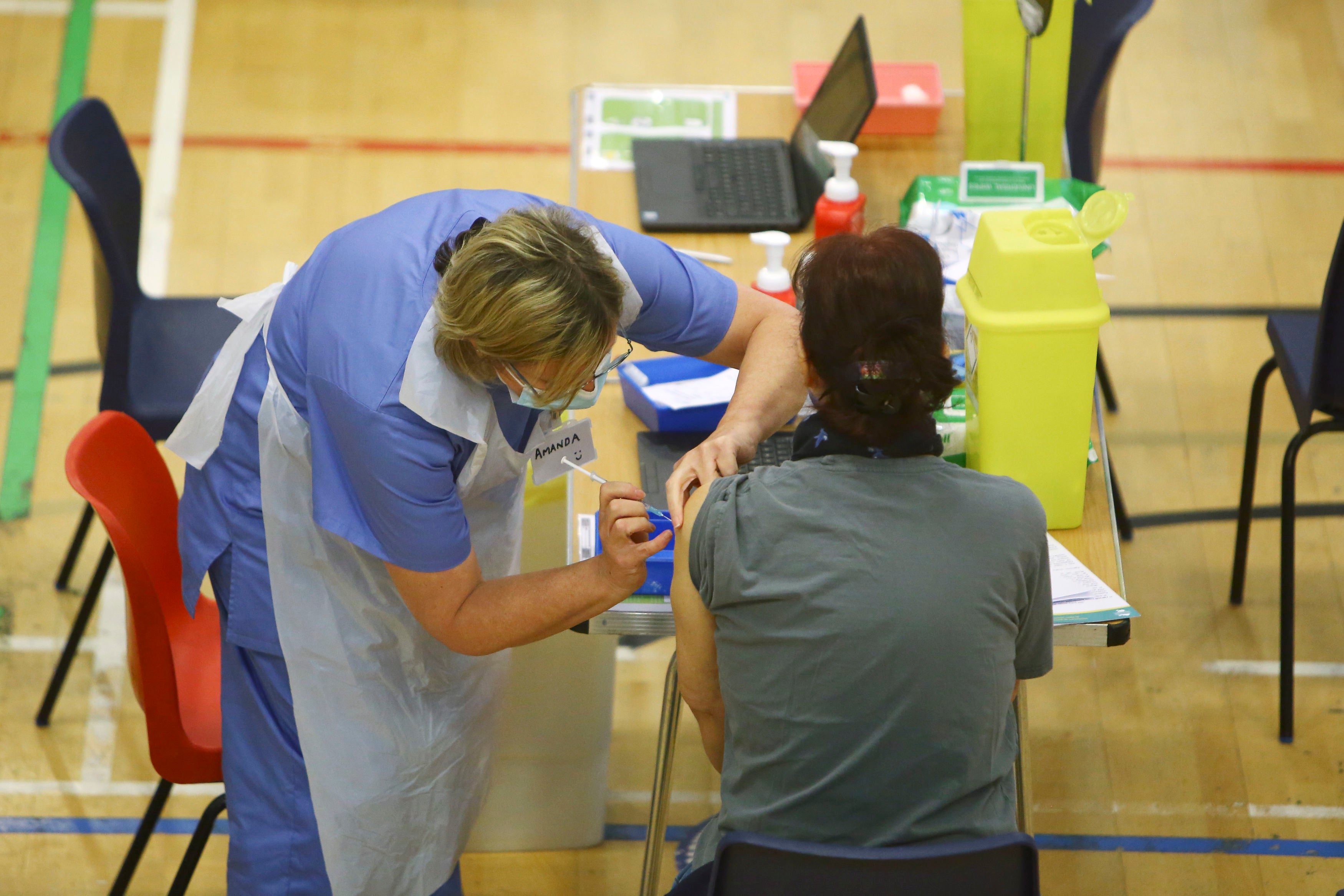Coronavirus infections fall across UK, as scientists hail impact of vaccine
Vaccines ‘doing the job’ in cutting the number of people infected, says top government adviser

Your support helps us to tell the story
From reproductive rights to climate change to Big Tech, The Independent is on the ground when the story is developing. Whether it's investigating the financials of Elon Musk's pro-Trump PAC or producing our latest documentary, 'The A Word', which shines a light on the American women fighting for reproductive rights, we know how important it is to parse out the facts from the messaging.
At such a critical moment in US history, we need reporters on the ground. Your donation allows us to keep sending journalists to speak to both sides of the story.
The Independent is trusted by Americans across the entire political spectrum. And unlike many other quality news outlets, we choose not to lock Americans out of our reporting and analysis with paywalls. We believe quality journalism should be available to everyone, paid for by those who can afford it.
Your support makes all the difference.The number of people infected with the coronavirus across the UK has dropped, according to new figures – as the latest reproduction number also pointed to a fall in transmission rates.
One government scientist said the latest data suggested the vaccination programme was bringing down infection levels, saying: “Everything’s moving in the right direction.”
Boris Johnson is expected to examine the latest data on vaccine effectiveness, case rates and hospital admissions this weekend, before setting out his roadmap for easing England’s lockdown on Monday.
The latest Office for National Statistics figures show one in 115 people in households in England had Covid-19 between 6 and 12 February – down from around one in 80 people the previous week.
Meanwhile, in Wales, around one in 125 people are estimated to have had Covid last week, down from one in 85 previously.
In Northern Ireland, the figure is around one in 105 people, down from one in 75, while in Scotland it is around one in 180 people, down from one in 150.
It comes as government scientists put the R rate of transmission – the number of people an infected person will pass coronavirus on to – at between 0.6 to 0.9 for the whole of the UK.
The lower-end estimate is the lowest R rate yet recorded by scientists during the pandemic, and represents slight progress from the previous week – when a range of 0.7 to 0.9 was recorded.
However, the experts warned that “prevalence of the virus remains high, so it remains vital that everyone continues to stay at home in order to keep the R value down”.

Top scientific advisers have said the evidence suggested the vaccine was helping shrink the virus in the UK.
Professor Adam Finn, a member of the Joint Committee on Vaccination and Immunisation (JCVI), said vaccines were “doing the job” when it comes to cutting the number of people infected. “Everything’s moving in the right direction,” he said.
Prof Finn told BBC Radio 4’s Today programme: “We’ve now got to the point with the study we’re doing in Bristol where we can say with certainty that there is definitely an effect.”
His comments were echoed by Professor Neil Ferguson from Imperial College London, a key figure in ensuring the UK went into lockdown last March who said data on vaccine effectiveness – as well as said data on declining infections, deaths and hospital cases – was “looking promising at the moment”.
Earlier on Friday, new research published in The Lancet showed the Pfizer vaccine reduced all infections by 75 per cent after only the first dose, including cases where people did not show symptoms.
The prime minister will examine the latest data on vaccine effectiveness this weekend, with Public Health England (PHE) due to publish data shortly which shows the effectiveness of the vaccination programme.
The ONS figures released on Friday show a continued decline since Christmas in the number of new Covid cases, although rates vary according to region.
Overall, 74,961 new cases were recorded in England in the seven days to 14 February, the equivalent of 133.2 per 100,000 people. This is down sharply from a peak of 680.8 cases per 100,000 people on 4 January.
Meanwhile, the number of patients in hospital in England with Covid-19 has also fallen sharply in recent weeks. A total of 15,633 patients were in hospital as of 18 February – down 54 per cent from a record 34,336 patients exactly one month earlier.
But while this is a sizeable drop, patient numbers at both a national and regional level are still higher than when England came out of its second lockdown on 2 December.


Join our commenting forum
Join thought-provoking conversations, follow other Independent readers and see their replies
Comments